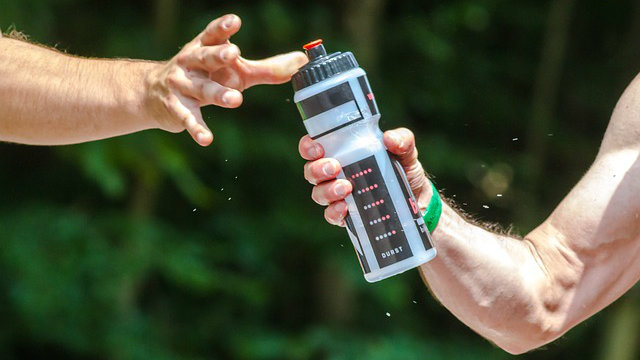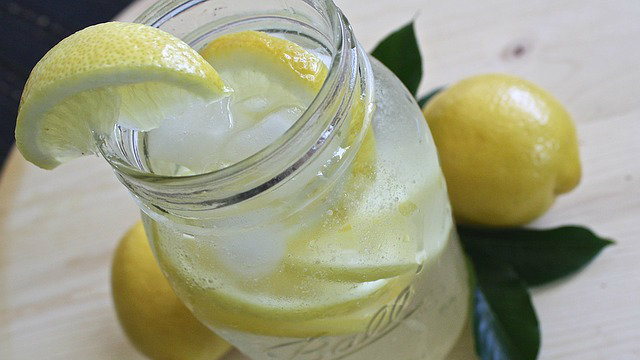 Reading Time: 6 minutes
Reading Time: 6 minutesWater is the essence of life. Every living thing needs water to survive, right down to every cell in all plants and animals. Our bodies are made up of nearly 75% water and in order to thrive, we must supply all the cells in our bodies with adequate water so these tiny magical building blocks that make up our bodies can carry out all their biological processes.
Water is required for many of the body’s essential functions in a variety of ways. Water is used as a solvent and as a transporter for the movement of nutrients, hormones, and other elements around the body. It is essential for maintaining cell structure. Water is also necessary to enable proteins that act as enzymes to function more efficiently. Enzymes are the catalysts that allow virtually all the chemical reactions within cells to take place. Without enzymes, most biological process would not occur since the chemical reactions would take too long.
One way our body compensates for a lack of water is by slowing down all our metabolic processes. Everything from the rate at which we eliminate waste in our cells, to cellular repair, and the rate at which we utilize our food for energy is affected in some way. Chronic dehydration can lead to a loss in these functions which can result in poor digestion, constipation, lethargy, headaches and migraines, dry skin and brittle hair, muscle cramps, joint swelling, and weight gain.
Athletes May Need a Gallon of Water Per Day
Most people don’t drink enough water, especially those who exercise a lot and have long, taxing sessions where they lose a lot of fluid. During a hard workout, we can lose more than half a gallon of water and if it’s not replaced, we spend the remainder of the day dehydrated.
Factor in the normal water lost from perspiration and performing day-to-day activities, and that means a person must drink at least a gallon of water a day to replace these lost fluids. Those who live in hot dry climates may need to drink even more. Remember that by the time we feel thirsty or have a dry mouth, we are already dehydrated.
How Our Bad Hydration Habits Happen
I believe many people are chronically dehydrated without realizing it due to their lifestyle and daily habits. A lot of people start the day off by drinking a coffee, consume little or no water with breakfast, and eat some dry processed cereal that pulls water from the body in order to be digested. More coffee, tea, sodas, dry carbohydrates such as crackers, and protein bars all contribute to dehydration as the day goes on. Then, in the evening, it is time for a sweaty training session or a workout. Dehydration is compounded further by eating a carb-dense dinner such as pasta with a lot of protein in order to replenish and refuel and then it is time for bed.
And your fluid loss doesn’t end there. During sleep, you can lose one to two pounds of water through respiration, sweating, and biological processes such as digestion and eliminating waste products. You wake up in the morning most certainly dehydrated and this daily routine repeated over time is a recipe for chronic dehydration.
How Chronic Dehydration Affects You
Muscle Cramps and Weakness
If you are an athlete or active exerciser, it is important that you drink adequate amounts of fluid in order to perform your best. Often athletes who are dehydrated experience muscular cramps that could be due to an imbalance of electrolytes. Water is the transporter of electrolytes that perform a cellular balancing act by allowing nutrients into the cell while excreting waste products. Certain elements such as sodium, magnesium, and potassium play a primary role in muscular contraction and nerve impulse transmission. It is at the cell membrane where these electrolytes conduct electrical currents similar to nerve impulses. If the delicate balancing act of electrolyte transport into and out of the cells is affected, then this can have a detrimental effect on muscular performance.
Inflamed Joints
If you are going to be active, then it’s important for you to have smooth supple joints and good mobility. If you are experiencing sore joints such as your knees and fingers, then it could be due to dehydration. The cartilage in your body is composed mainly of water. Cartilage surfaces glide over one another and can become worn over time. Water is needed to transport the nutrients required for maintenance and repair, whereby new cartilage is produced to replace the damaged cartilage cells. Dehydration may increase the abrasive damage and slow down the repair, resulting in joint pain.
Lethargy and Weight Gain
In order to effectively digest food, water is required. If you are dehydrated, then your digestion and the rate at which you process your food for energy is slowed down, which could lead to fatigue since your body is not getting the nourishment from the food you consume at the rate it needs. Additionally, dehydration contributes to reduced enzyme activity and slower metabolic processes.
Water is required to break down fats into fatty acids, polysaccharides into monosaccharides, and glucose and protein into amino acids through the process of hydrolysis to be utilized for energy. The limited water supply in our bodies slows down all these chemical reactions, which can affect the rate at which you burn your calories for energy, which can then in the long term lead to greater difficulty in weight loss. Adequate water means proper digestion, an optimally running metabolism, and the ability to burn calories at a higher rate. This not only helps keep your body fat levels in check, but gives you more energy and allows you to feel more vital throughout the day.
How to Stay Hydrated
Start the day by drinking between one to two cups of water every morning before a decent breakfast such as eggs and fruit, which contains water and can aid in digestion. Throughout the day eat foods high in water content such as fruits, vegetables, and proteins like fish or fermented tofu. Carry a water bottle around with you as a reminder to drink and as a way to measure your daily intake. Sip on herbal teas and water with chopped cucumbers or lemons for some additional flavor.
Avoid diuretic foods and drinks such as coffee, tea, sodas, and dense, dry carbohydrates such as crackers or cereals and also protein bars that suck the water from your body in order to process them.
If you think you suffer from any of the conditions caused by chronic dehydration, such as fatigue, sore joints, or constipation, be meticulous about drinking adequate amounts of water and replacing your fluids. Chronic dehydration means you have been in that state for a long time so drinking a gallon for one day won’t necessarily heal you or reduce your symptoms right away. However, after a few weeks of practicing a consistent hydration habit, you should notice a difference to your energy levels, digestion, joint pain, and muscle recovery — and start to feel like the athlete you once knew.










